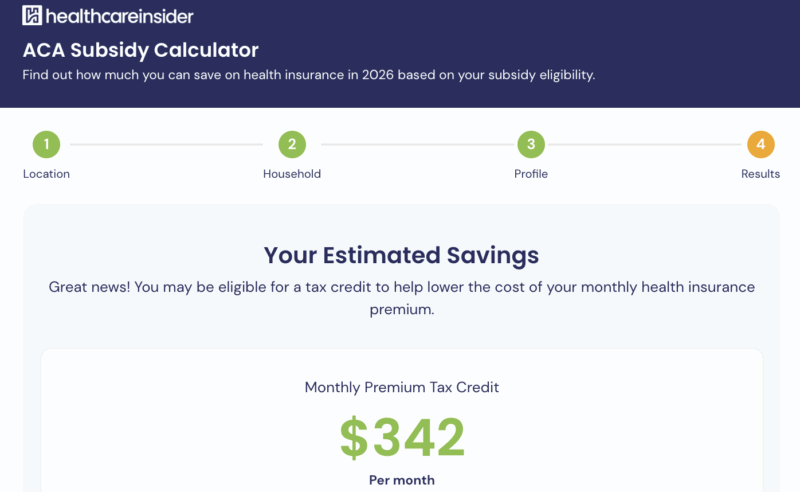Written by Jenifer Dorsey
HealthCare Writer
Reviewed by Kim Buckey
We want to help you make educated healthcare decisions. While this post may have links to lead generation forms, this won’t influence our writing. We adhere to strict editorial standards to provide the most accurate and unbiased information.
Key Takeaways
- Who you can cover on your health insurance depends on your relationships, responsibility and health plan.
- To cover someone on your health plan he or she has to fit the definition of a qualifying child, spouse or tax dependent according to IRS rules.
One frequent question that comes up is exactly who can be covered as a dependent for health insurance purposes through the state and federally run Exchanges. The answer depends in part on blood relationships, and in part on financial and legal responsibility. Often, the eligibility rules for the health plan itself will determine who you can cover.
To help simplify all this, we turned to some tax experts to get the answers. Gabe Lumby, CPA, works with individuals and small businesses in the Springfield, Missouri, area. He explained that, generally speaking, to cover someone as a dependent the individual must be a qualifying child, spouse or tax dependent under IRS regulations. He/she must be a citizen, national or resident of the U.S. or a resident of Canada or Mexico.
Who, exactly, can be considered for each of these categories?
What Is a Qualifying Child:
- The child must be related to you (e.g., your child, sibling or grandchild).
- The child must be one of the following:
- under age 19 at the end of the year if not enrolled in school, and younger than you (or your spouse if filing jointly)
- under age 24 at the end of the year, a student, and younger than you (or your spouse if filing jointly)
- any age if permanently and totally disabled
- The child must have lived with you for more than half of the year (though some exceptions apply).
- The child must not have provided more than half of his or her own support for the year.
- The child must not be filing a joint return for the year (unless that joint return is filed only to claim a refund of withheld income tax or estimated taxes paid).
Also, if the child meets the rules to be a qualifying child of more than one person, only one individual can claim the child as a qualifying child. If the child does not meet the requirements of a qualifying child, he/she may meet the criteria to be a qualifying dependent.
What Is a Qualifying Dependent?
- The person can be any age but cannot be the tax dependent of any other taxpayer.
- The individual must be a relative or, if a non-relative, must live with you all year as a member of your household. (Your relationship must not violate local law).
- The person’s gross income for the year must be less than $4,200 (for 2019).
- You must provide more than half of the person’s total support for the year.
A good general rule is that if you can count someone as a dependent on your taxes, you can cover them through your health insurance plan. In fact, under the Affordable Care Act, you are required to provide health insurance for anyone whom you claim as a tax dependent.
What if you pay for someone’s health insurance premiums but cannot claim them on your tax return? The person who is covered, or the person who claims the dependent, gets to check the box on their tax return saying the dependent has health insurance—line 61 on Form 1040.
“If you purchase healthcare insurance for a friend or relative, this will benefit whoever claims that person on their tax return,” says Kevin Hopson, CEO and co-founder of online tax prep software TaxPoint. “The person claiming someone on a tax return must address the insurance issue. The taxpayer does not necessarily have to pay for the insurance–if the dependent is insured, it doesn’t matter where premium comes from. The issue is whether or not each person on a return has insurance, or if they may be exempt for some reason.”
Hopson reminds consumers that to claim someone, you must first pass the support test. Issues may need to be looked at on a case-by-case basis. He adds that it is possible to claim someone that does not live in the United States if you provided more than half of their support. If this person is not a resident of the U.S., however, he or she would be exempt.
If you only provide health insurance to someone, it is considered a gift, explains Vincenzo Villamena, managing partner of CPA firm Online Taxman. That means you must make sure the insurance coverage is under $15,000 or it will be taxable.
What About the Premium Tax Credit?
As far as the premium tax credit goes, several criteria apply for individuals to qualify for help paying their health insurance premiums:
- Your income must fall within 100% to 400% of the federal poverty level.
- If you are married, you cannot file “married filing separately” unless you are a victim of domestic violence or spousal abandonment
- You cannot be claimed as a dependent by another person
- You or a covered family member are enrolled in coverage through the Marketplace for at least one month of a calendar year in which:
- You were not eligible for affordable coverage through an eligible employer plan providing minimum value or
- You were not eligible to enroll in government health coverage (such as Medicare, Medicaid or TRICARE).
If you meet the above criteria, you may be eligible for the premium tax credit, which will help lower premiums for you and your dependents overall (i.e., not everyone in the family gets their own tax credit). If you meet the above criteria and purchase insurance on another’s behalf, whether or not that premium tax credit applies to their premium as well comes down to dependency status.
“You would only report your dependents,” Villamena says. “If the child is a dependent, then you get the benefit (counted as an exemption, potential child tax credit, etc); however, it would also affect the family’s premium tax credit. Once someone is a dependent, then they are factored into the equation.”
Lumby explains that children who do not qualify as dependents receive health insurance as a gift and are not eligible for a tax credit on the return since they wouldn’t be listed on the return. He adds that when you report your household size, it can not be different from the total number of exemptions on your return.
“In other words, you would never be able to count a child as a dependent and not as a member of the household. Nor would you be able to count the child as a member of the household and not a dependent,” he says.
Need guidance?
Check out the article, Taxes Under Obamacare: 1095-A Tax Form, Tax Credits, Deductions, and Everything Else, for more updates on how the Affordable Care Act could affect your federal taxes, what forms and fees you might need when filing this year, and facts to help dispel common myths about health insurance, taxes, and the ACA. Keep in mind that some states still require residents to have health insurance coverage and to report that coverage on their state taxes.
If you have questions and concerns about health insurance and your federal income taxes and/or need help filing, consult a tax professional who has ACA training and is up to date with the law
Thank you for your feedback!


 by
Kim Buckey |
Updated on
August 18, 2025
by
Kim Buckey |
Updated on
August 18, 2025 





